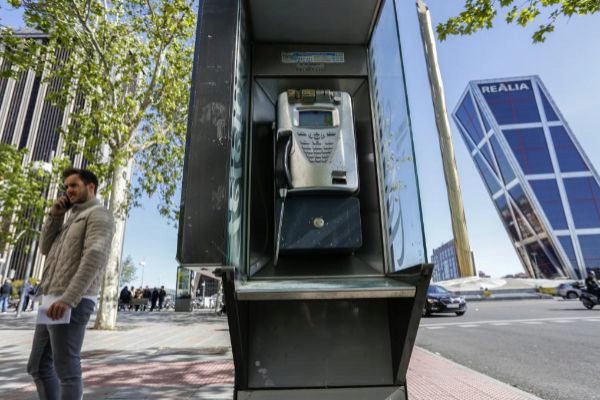The National Commission of Markets and Competition (CNMC) has again proposed to the Government that it abolish the obligation to keep the cabins within the universal service, as well as the need to update the guaranteed speed of 1 Mbps in the network connection public from a fixed location, necessary for Internet access.
The CNMC has published on Monday two reports in which it analyzes the bidding documents to be carried out by the Secretary of State for Digital Advancement (SEAD) around the different elements that make up the universal service for its provision as of January 1, 2020.
The universal service is included in the General Telecommunications Law and guarantees that all citizens have access to a series of services "regardless of their geographical location, with a determined quality and at an affordable price" , which includes carrying the telecommunications network to anywhere in the country, including unprofitable areas.
In the case of the cabins, the CNMC shows, once again, the need to suppress this service as an element belonging to the scope of the universal service, having found "the progressive abandonment of its use, in terms of call traffic, of income and territorial distribution of its use ".
In addition, remember that the current regulation of the European Code of Electronic Communications no longer includes the cabins within the universal service, although it authorizes the States to continue providing this service under certain conditions, to be analyzed.
The Government decided last December that the provision of public pay telephones through telephone booths would maintain one more year its nature of "universal telecommunications service", until December 31, 2019, for whose benefit Telefónica was reappointed .
The Executive then justified his decision that would allow a more complete review of the universal service within the framework of the transposition of the European Code of Electronic Communications, in a coordinated manner with most EU countries.
CONNECTION AND TELEPHONE SERVICE
With regard to the connection to the public network from a fixed location in order to allow broadband data communications at a rate not less than 1 Mbps, the CNMC recommends the establishment of certain minimum quality conditions and parameters with the in order to avoid certain limitations of speed and / or volumes of data to the end users by the successful tenderer.
In this regard, the Commission recalls that Telefónica, which is the company designated to provide this universal service, currently limits Internet browsing at a rate of 1 Mbps to 5 GB per month , and exceeding this capacity, the navigation speed goes to be 128/64 Kbps.
In this context, the CNMC highlights the need to update the guaranteed speed in the universal service, through the modification of the General Telecommunications Law, since "the offer of 1 Mbps does not conform to social and technological evolution current".
In fact, it points out that there are practically no commercial offers in the market below 10 Mbps, as reflected in 2018, 96% of the lines had speeds greater than 10 Mbps and 74.2% at 30 Mbps. that the Digital Agendas, both European and Spanish, set as a goal by 2020 that the entire population can have access of 30 Mbps.
On the other hand, the agency also recommends that, in order to ensure that end users are better aware of the benefits included in the elements of the universal service, such as the social subscription (discount for retirees and pensioners with low incomes), it is mandatory The winning operator to publicize in a more visible way the description of the elements and characteristics of the services for which it has been designated on its website.
According to the criteria of The Trust Project
Know more- Telefonica
- Internet
- 5G telephony
Adjustment Teleco Operators: 50,000 casualties so far this century
Billing Revenue from pay-TV takes advantage over those of the open model
Telephony The 473 million euros of the Mobile World Congress of Barcelona, on the air

